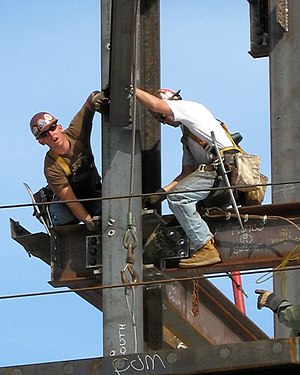Wikiversity:Culture

Wikiversity's culture of diplomatic honesty and good faith is important.
"..... the idea here is to also host learning communities, so people who are actually trying to learn, actually have a place to come and interact and help each other figure out how to learn things."
(Jimbo Wales - In the opening session of Wikimania 2006 talking about Wikiversity)
This section explores Wikiversity's image, mission and effectiveness in terms of its social aspects.
Structure
[edit source]The use of namespaces at Wikiversity is perhaps one of its the most unique and innovative features, particularly the addition of School: and Topic:, which designate what might traditionally be thought of as "departments" or "divisions" within a "brick and mortar" university. But as we develop Wikiversity, we should pay more attention to the User: namespace than is allowed by the policies on other Wikimedia projects for a variety of reasons. As our policies form, we must realize that personal expression, interpersonal dialog and cultural distinction are inherent parts of a typical university environment, both in brick-and-mortar institutions and online learning networks.
People
[edit source]Wikiversity participants (occasionally called Wikiversitans) are generally creative, thoughtful people who come here to do serious work, growing as learners and teachers, producing useful work and making a positive difference in their World. But we also have less serious sides, playful sides. As members of a tightly-knit learning community, we learn to express ourselves responsibly and allow ourselves to be impressed upon by others, thereby forming interpersonal relationship through our encounters. We join groups of like-minded folks through Schools, Topics, and other group learning situations where we focus on the tasks at hand. In the process, we learn to work together to achieve learning goals, which can be both individual and collective.
When we build our userpages, we are acutely aware of how public they are. Everyone has a different personality. Some people may not create a userpage because they are shy or it is not important to them. (See Special:Logs for evidence.) Others go to extremes to make an impression. Everytime we edit a page, we risk "face" because of MediaWiki's ability to track our every move. Doing something "foolish", as most wiki users know, seldom goes "unpunished". However, as long as users make edits in good faith, it is not hard to save face. Learning what is appropriate and where, is not a bad priority for the responsible Wikiversitan. It is important to develop centers of culture at Wikiversity that allow the freedom of expression.
It is also important to realize that we have a "collective face" to those outside our circle.
Relationships
[edit source]As a Campus, our "places" and "spaces" matter. All users are allowed their own personal space in the form of user subpages for self-reflection and the development of organized thoughts that we are working through individually. There are as many ways to use these subpages as there are Wikiversity users. As we assume good faith, we learn to respect each other's privacy through the practice of good netizenship. We learn to understand each other's identity, tolerate each other's idiosyncrasies, and develop ways to foster mutual respect. We also learn to balance scholarship, focus, and fun, while getting better at what we do as topic-focused teams, taskforces, interest groups and scholarly associations, large and small. Through association with others within our online shared spaces, practice is the only way to learn netizenship . Schools, Divisions and Departments are collections of both people and learning resources. Our culture and Wikiversity's relaxed policies allow us to develop as individuals within a comfort zone unique in the context of the larger Wikimedia metacommunity. One cannot fully think about developing Wikiversity without being aware of its culture.
As our learning community grows, our hope is to produce not only valuable learning resources, but also better people who indeed can bring about positive social change both online and in the real world.

